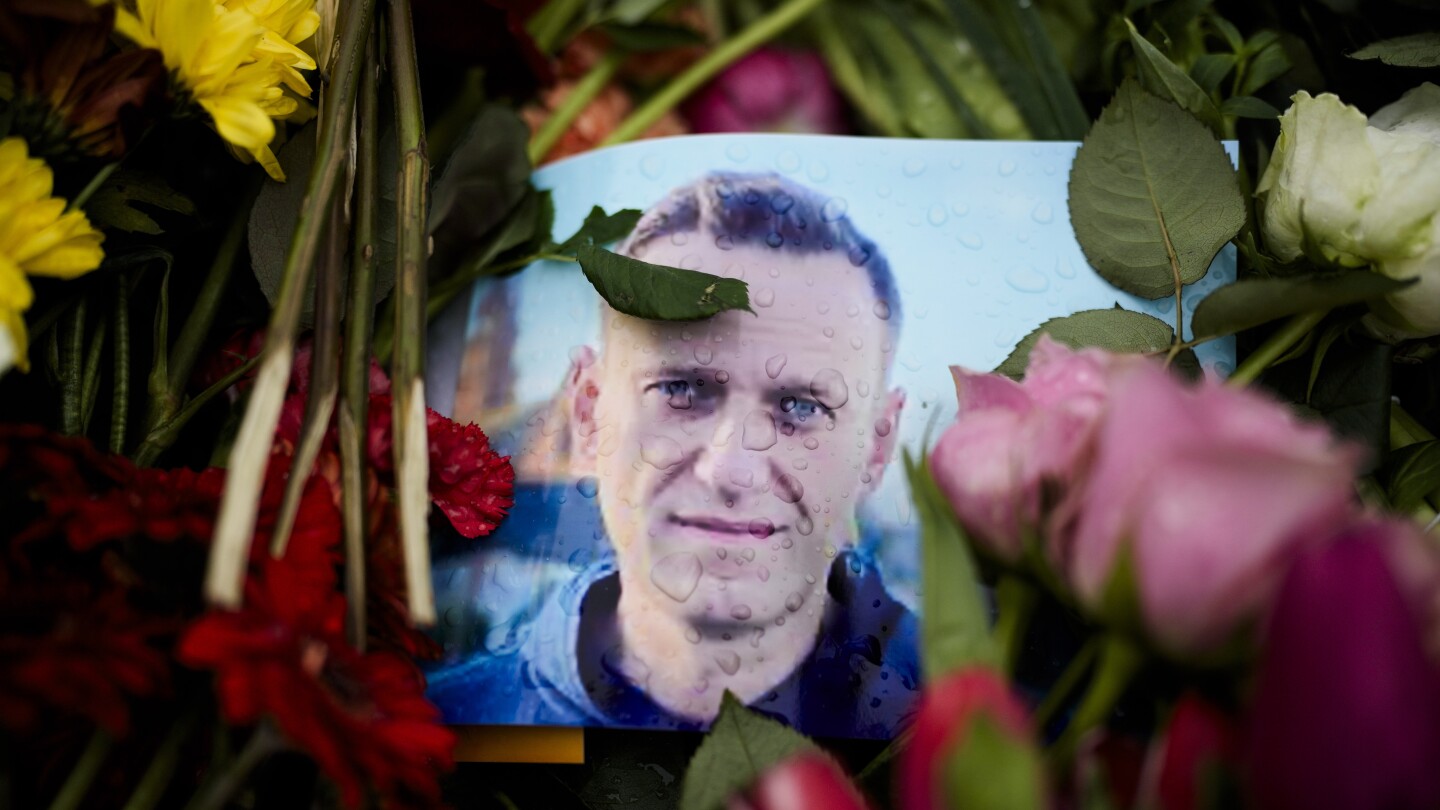Cultural icons including Nobel Prize-winning journalist Dmitry Muratov and ballet star Mikhail Baryshnikov have released videos calling on Russian authorities to return the body of opposition leader Alexei Navalny to his family, a week after his death in an Arctic penal colony.
Navalny’s mother said Thursday that she has seen her son’s body and that she is resisting heavy pressure to agree to a secret burial away from the public eye.
Lyudmila Navalnaya said investigators allowed her to see her son’s body in the city morgue. She said she repeated her demand to have Navalny’s body returned to her and protested what she described as authorities trying to force her to agree to a secret burial.
“They are blackmailing me. They are setting conditions where, when and how my son should be buried,” she said Thursday in a video statement from the Arctic city of Salekhard. “They want it to do it secretly without a mourning ceremony.”
Navalny’s spokesman, Kira Yarmysh, said on X, formerly Twitter, that his mother was also shown a medical certificate stating that the 47-year-old politician died of “natural causes.” Yarmysh didn’t specify what those were.
Posting on social media, prominent Russians directly appealed to President Vladimir Putin, demanding that he return Navalny’s body to his family.
“Just give Lyudmila her son,” Muratov, the winner of the Nobel Peace Prize said, adding, “It’s awkward to talk about this in a country that still considers itself Christian.”
Nadya Tolokonnikova, who became widely known after spending nearly two years in prison for taking part in a 2012 protest with the band Pussy Riot inside Moscow’s Christ the Savior Cathedral, also released a video.
“We were imprisoned for allegedly trampling on traditional values. But no one tramples on traditional Russian values more than you, Putin, your officials and your priests who pray for all the murder that you do, year after year, day after day,” Tolokonnikova said.
“Putin, have a conscience, give his mother the body of her son,” she added.
Ballet star Baryshnikov said he “firmly requests” authorities return “the body of the murdered Alexei Navalny to his mother.”
Navalny, Russia’s most well-known opposition politician, suddenly died in an Arctic prison last week, prompting hundreds of Russians across the country to stream to impromptu memorials with flowers and candles. The Russian authorities have detained scores of people as they seek to suppress any major outpouring of sympathy for President Vladimir Putin’s fiercest foe before the presidential election he is almost certain to win.
Across the ocean in San Francisco Thursday, U.S. President Joe Biden met with Navalny’s widow, Yulia Navalnaya, and 20-year-old daughter, Dasha, expressing “condolences for their devastating loss.”
“To state the obvious, he was a man of incredible courage,” Biden said after the meeting. “It’s amazing how his wife and daughter are emulating that.”
Navalny’s mother has filed a lawsuit at a court in Salekhard contesting officials’ refusal to release her son’s body. A closed-door hearing has been scheduled for March 4. On Tuesday, she appealed to Putin to release her son’s remains so that she could bury him with dignity.
In the video released Thursday, Navalnaya said that she had spent nearly 24 hours in the Salekhard office of the Investigative Committee, where officials told her that they have determined the politician’s cause of death and have the paperwork ready, but she has to agree to a secret funeral.
“They want to take me to the outskirts of the cemetery to a fresh grave and say: ‘Here lies your son.’ I don’t agree to this. I want you too — to whom Alexei is dear, for whom his death was a personal tragedy — to have the opportunity to say goodbye to him,” she said.
Navalnaya accused the authorities of threatening her: “Investigator Voropayev openly told me: ‘Time is not on your side, the corpse is decomposing.”
In a video on Monday, Yulia Navalnaya accused Putin of killing her husband and alleged the refusal to release his body was part of a cover-up.
Kremlin spokesman Dmitry Peskov rejected the allegations, calling them “absolutely unfounded, insolent accusations about the head of the Russian state.”

